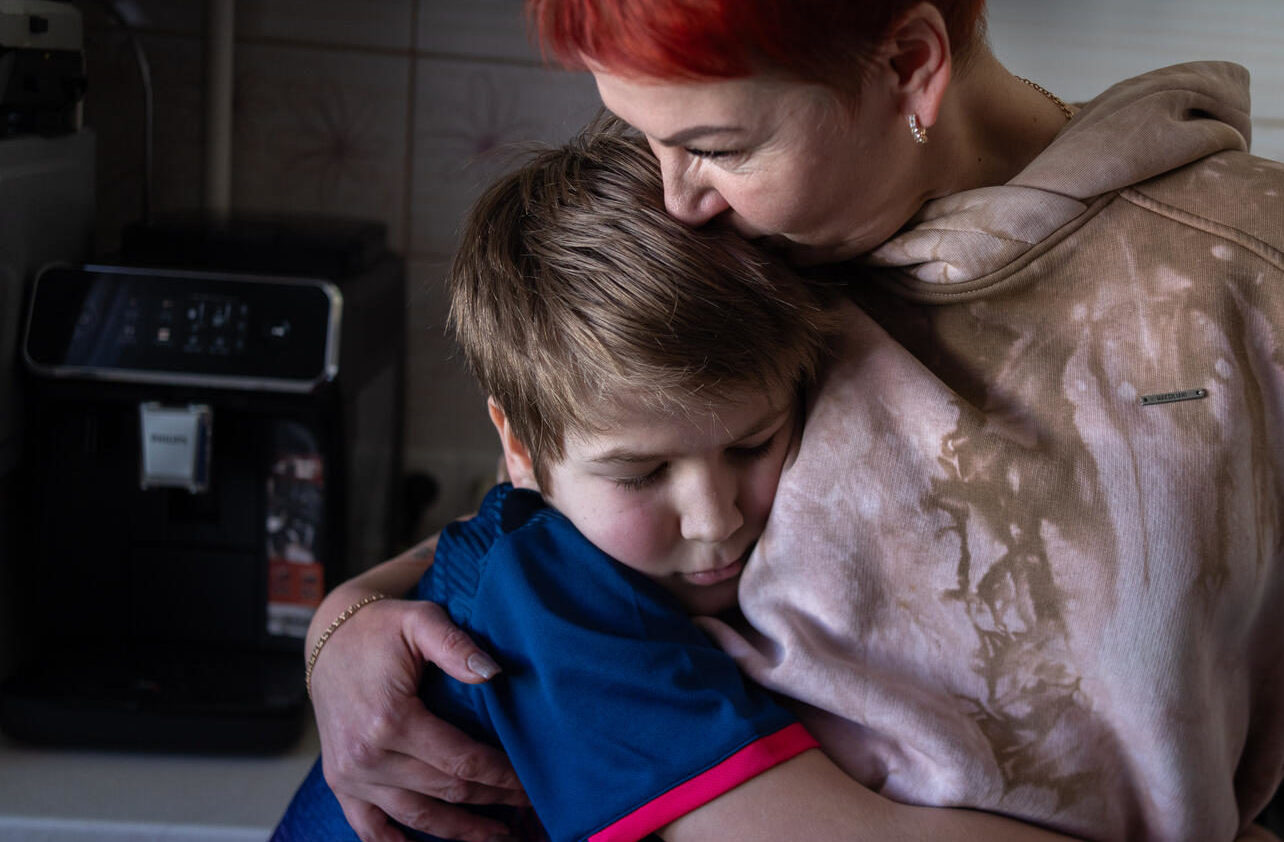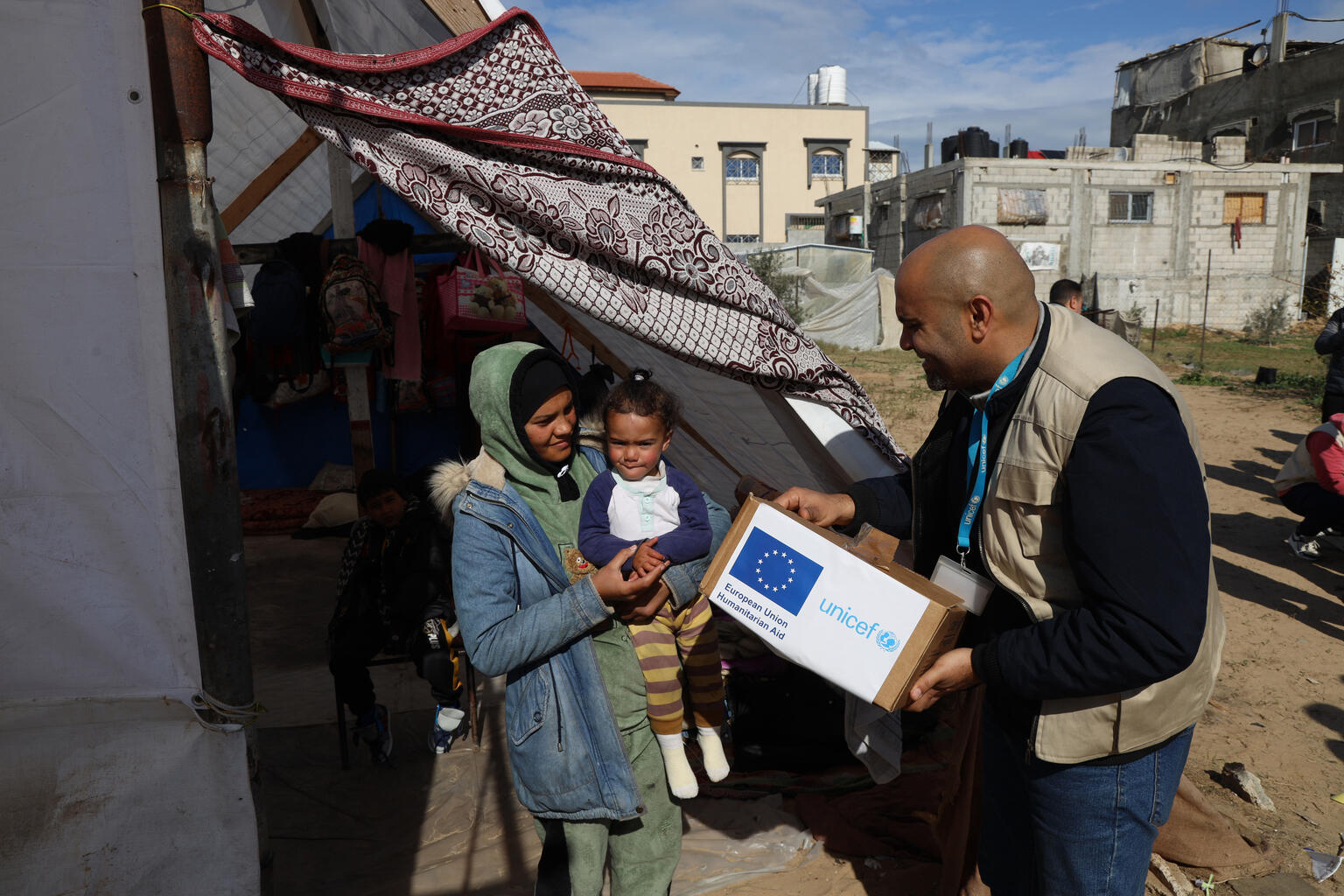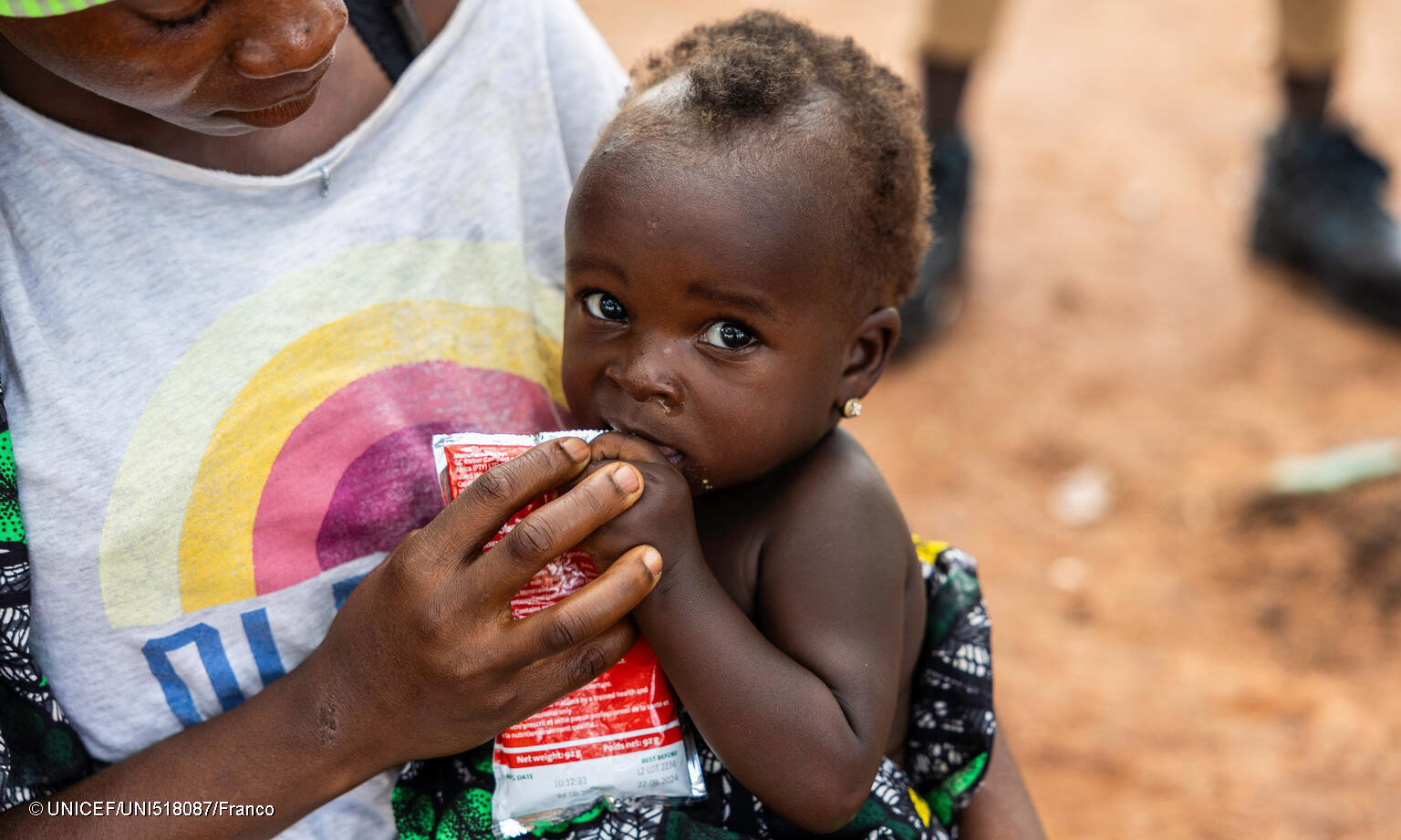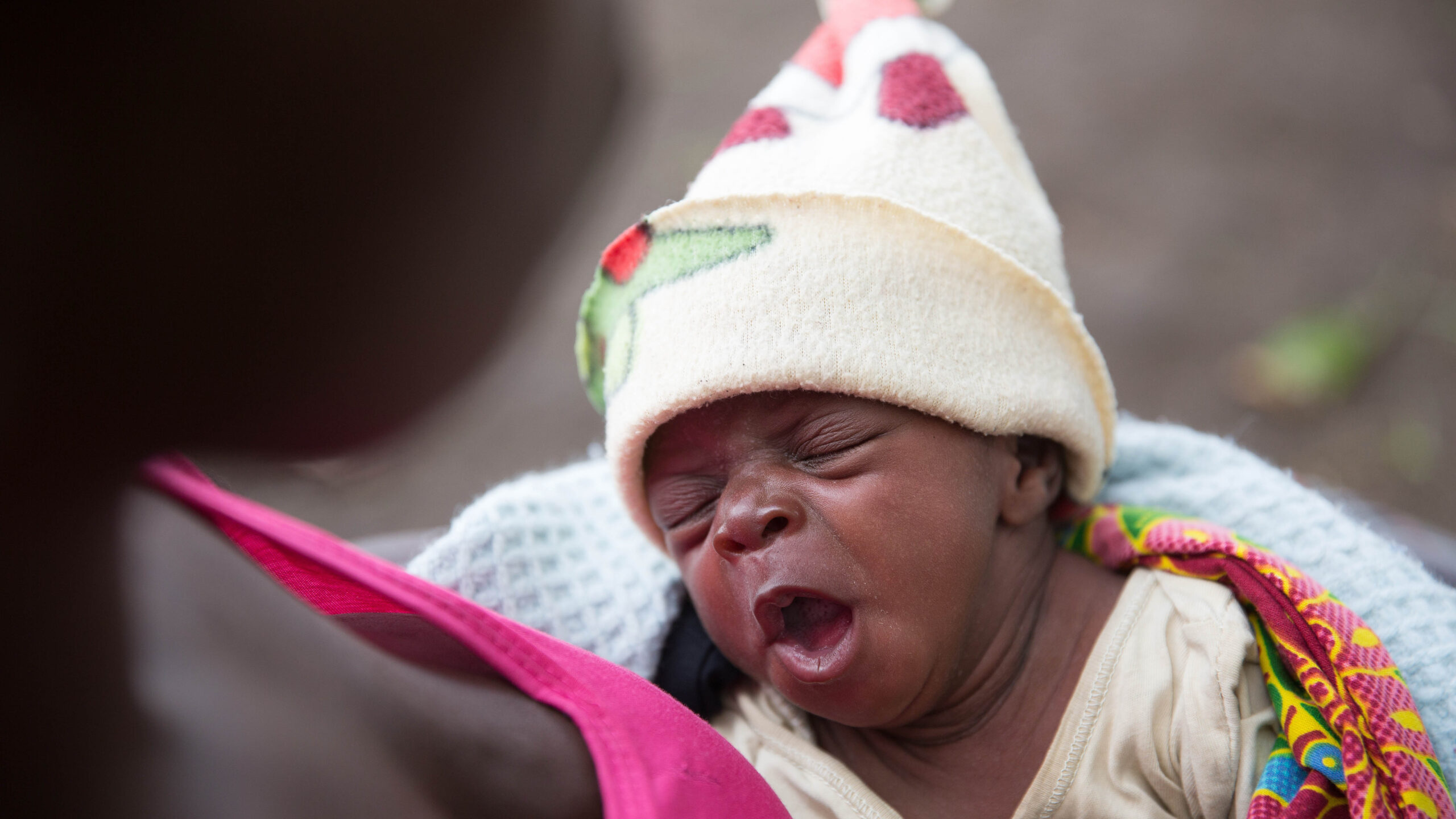Challenges and solutions
Conflict and natural disaster hit home the hardest when they affect women and children, and so 70 years after UNICEF first began delivering emergency aid in the aftermath of World War II to help starving children in Europe, our mission as a children’s charity to provide relief is more vital than ever before.
Today UNICEF faces new challenges. Globally, humanitarian needs are growing and the average emergency now lasts more than nine years. Conflict, like the wars in Syria and Yemen, famine, cyclones, climate change and the displacement of refugee children. Each one requires us to innovate and continue our work both on the ground and behind the scenes.
UNICEF believes that children play a vital role in future solutions and that every child deserves a childhood. By providing emergency relief as quickly as possible when disaster strikes, we are helping change communities for the better.
With a field presence before, during and after emergencies, a vast network of partners including governments, civil society, communities and private sector partners and leading responsibility in areas of water, sanitation and hygiene (WASH), nutrition, education and child protection, we are uniquely positioned to respond to the needs of children in emergencies at speed and at scale.
Working tirelessly in some of the world’s toughest environments, UNICEF continues to rebuild lives by better adapting emergency response programmes to address the needs of specific populations affected by poverty, climate change and war.

Children in conflict
Conflict remains a primary driver of humanitarian need with more countries embroiled in violent conflict than at any other time in the past 30 years.
Widespread displacement and the destruction of vital infrastructure in conflict areas are having devastating consequences on children’s lives, impacting their physical and mental health.
This is especially true in countries like Syria, Yemen and the Democratic Republic of the Congo, where conflict-related humanitarian crisis have endured for years.

How can UNICEF respond to emergencies so quickly?
UNICEF continues to work relentlessly alongside other committees to aid the world’s poorest children, and have demonstrated their ability to provide a fast response in emergency situations thanks to an extensive global network.
Our presence is felt worldwide, with relief operations ongoing in 190 countries. We are particularly proud of our country-level humanitarian action beginning with UNICEF Ireland, and support from a worldwide architecture made up of 7 regional offices and 20 headquarters divisions.
By collaborating with local governments, NGOS and international charities, we can better understand the needs of each individual community and change the lives of children worldwide.
The Supply Division manages three principal hubs, which have been established to ensure that in emergencies, children and their families receive necessary supplies quickly and effectively, with minimum transport costs.
These hubs, in Dubai, Panama and Shanghai, together with the Copenhagen operation contain sufficient emergency supplies to meet the needs of 250,000 people for three weeks.

Reach children in emergencies today
War, drought, famine – crises continue to pose a threat children. They can fall to victim to disease and starvation very quickly, which is why we dedicate our efforts to understanding the right solutions. By donating to UNICEF, we can work together to improve the chances of a child’s survival and give them the childhood they deserve.


